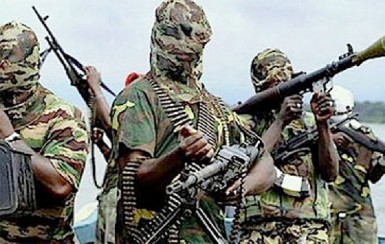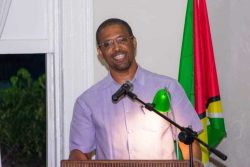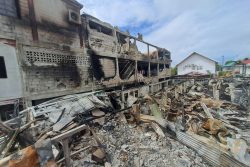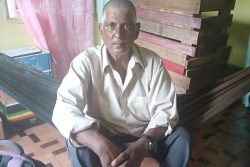ABUJA (Reuters) – A morning rush hour bomb killed at least 71 people at a Nigerian bus station on the outskirts of the capital yesterday, raising concerns about the spread of an Islamist insurgency after the deadliest ever attack on Abuja.

President Goodluck Jonathan pointed the finger of suspicion at Boko Haram, although there was no immediate claim of responsibility from the Islamist militants who are active mainly in the northeast. As well as the dead, police said 124 were wounded in the first attack on the federal capital in two years.
Visiting the scene, Jonathan denounced “the activities of those who are trying to move our country backwards” by staging such an attack. “We will get over it … The issue of Boko Haram is temporary,” he said, imploring Nigerians to be more vigilant in the face of suspicious characters.
Security experts suspect the explosion was inside a vehicle, said Air Commodore Charles Otegbade, director of search and rescue operations. The bus station, 8 km (5 miles) southwest of central Abuja, serves Nyanya, a poor, ethnically and religiously mixed satellite town where many residents work in the city.
“I was waiting to get on a bus when I heard a deafening explosion, then saw smoke,” said Mimi Daniels, who escaped from the blast with minor injuries to her arm. “People were running around in panic.”
Bloody remains lay strewn over the ground as security forces struggled to hold back a crowd of onlookers and fire crews hosed down a bus still holding the charred bodies of commuters.
“These are the remains of my friend,” said a man, who gave his name as John, holding up a bloodied shirt. “His travel ticket with his name on was in the shirt pocket.”
The attack underscored the vulnerability of Nigeria’s federal capital, built in the 1980s in the geographic centre of the country to replace coastal Lagos as the seat of government for what is now Africa’s biggest economy and top oil producer.
Boko Haram militants are increasingly targeting civilians they accuse of collaborating with the government or security forces. Amnesty International estimates the conflict has killed 1,500 people in the past year.
The police said its agencies were on “red alert”, and urged Nigerians to help with an investigation to find the killers.








